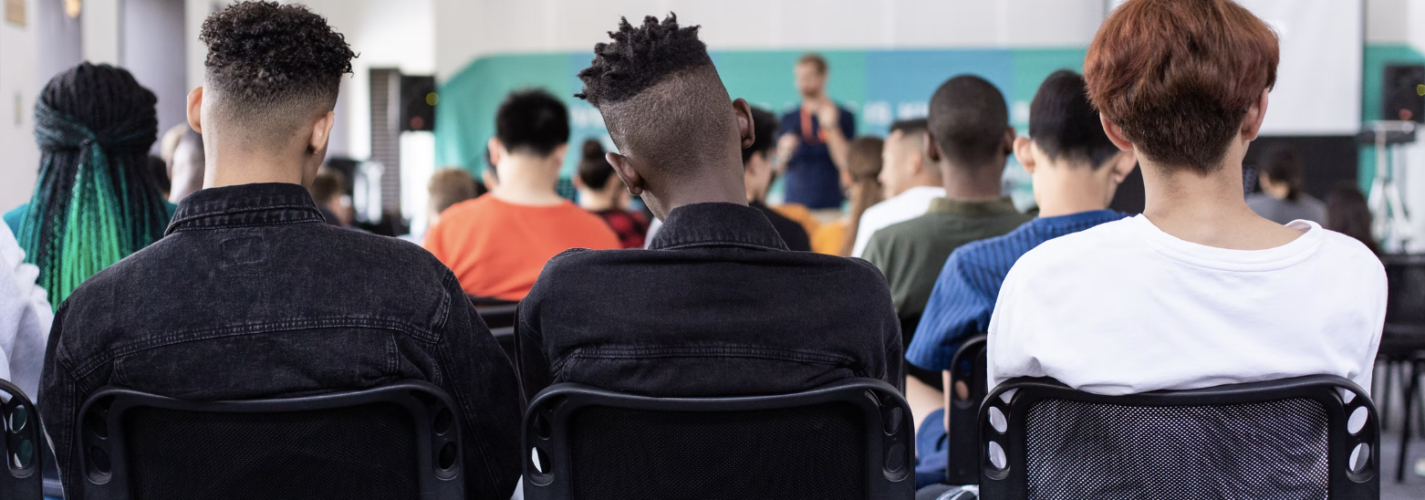The Broken Promise of Advanced Coursework for Students of Color (Like Me)
By Riyan Said
Hours before crossing the stage for high school graduation, I reflected on my journey. Meeting wonderful friends and mentors and gaining new experiences is nothing to sneeze at. Yet even now, my mind is filled with the negative memories of my advanced classes—constant racism, and the fear that despite my struggles and perseverance my education is still not up to par. What stands out and hurts me the most is that when I relay my experiences to peers, many fellow students of color relate. I’m not isolated or in a bubble; the experience is a shared one. And that’s a systemic problem.
Eager to see how much other students’ experiences aligned with mine—whether the other students of color experienced the same exclusion and racist practices in classes—I interviewed a handful of students in hopes of shedding some light on this issue.
What students of color are saying about classroom experiences
One of the biggest problems I experienced during my time as a student in AP/IB classes is the fact that I did not feel welcomed. Unfortunately, one Black student, who’s chosen to remain anonymous, could relate.
“I took AP/IB classes because I was told they were college prep classes and I could potentially get college credit for it. In the beginning, I felt alone and was self-conscious in those classes,” they said. “As the years went by, I grew accustomed to the atmosphere and just kept to myself.”
A senior named Sumaya, who had generally avoided AP/IB classes due to this environment, agreed about the cold atmosphere. “The class felt very uncomfortable. The white students don’t really talk to you or make an effort [to]. I am a person who keeps to myself and even then they turn away.” Sumaya said.
If even students outside of AP/IB spaces can attest to this uncomfortable and stifling atmosphere, how can we close the racial disparity in how welcome we are in academic spaces?
This similarity in experience raises many questions. If even students outside of AP/IB spaces can attest to this uncomfortable and stifling atmosphere, how can we close the racial disparity in how welcome we are in academic spaces? The environment is not the only cause for concern. The teachers and content of the class can be a stressor and reason to avoid the classes as well.
“I dropped Advanced English in 10th-grade because the teacher was known to be racist and did not help me at all,” another senior said. “The classes are all elitist and classist.”
Another student of African descent could relate, “I thought of [dropping classes] because I wasn’t receiving the help I wanted. With teachers and students thinking I don’t know as much or excluding me from activities.”
Stress levels among students who lack support in advanced coursework
A multiyear study done by education professors Dr. Shannon Suldo and Dr. Elizabeth Shaunessy-Dedrick helps explain this phenomenon. The study examines the increase in stress levels that students within advanced classes experience while considering the lack of support they have. These stress levels can be even further exacerbated by the exclusion of the few students of color within these spaces.
Without much encouragement to join advanced courses and a severe lack of systemic solutions to the racial gap, there seem to be many obstacles in the way before we can see improvement. And until then students like me—like us—will move through our education missing out on opportunities, access, and support.
There’s still a chance to fix this
I believe that there is still a fix to all of this. It should begin at the state level, making sure that every school examines the racial makeup of their advanced courses and acts accordingly to even the present disparities. This can be done by encouraging more students of color early on in K-8 to join AP/IB classes in high school. Then, the coursework and textbooks must be addressed and adjusted to move away from a white supremacist founding and viewpoint. I hope that with these being the first of many changes, there can be progress toward AP/IB classes becoming positive spaces for all students, but especially for students of color.
EdAllies seeks to elevate diverse voices and foster a candid dialogue about education. While we provide our blog as a platform for EdVoices and other guest contributors, the views and opinions they express are solely their own. Click here to learn more about becoming an EdVoices contributor.

